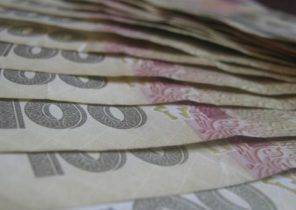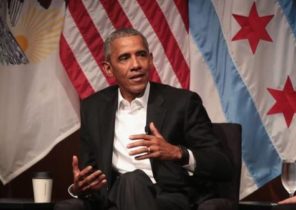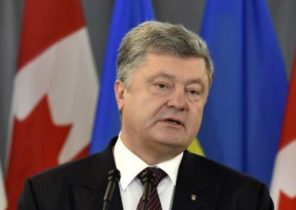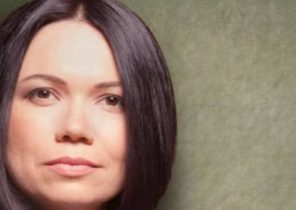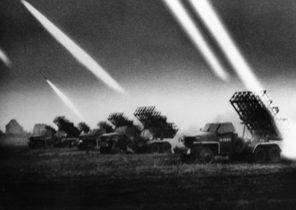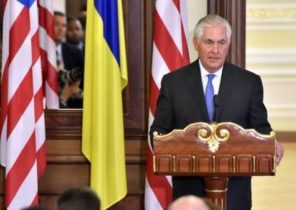
When a hundred years ago, broke up multiethnic Empire in Eastern Europe, many intellectuals of the new nation-States took this moment as the realization of historical predictions — Russia, the Habsburg monarchy, the Ottoman Empire and Prussia-Germany was considered to be soulless machines of power and a prison of peoples. The Czech philosopher tomáš Masaryk precisely formulated this thesis, when he in 1917 in Petrograd, today’s St. Petersburg, wrote program brochure entitled “the New Europe. Slavic point of view”. The most important task after the war is to “restore the Eastern Europe on a national basis,” he said, because humanity is not a supranational and is an organization of individual Nations.
However, the destruction of empires has caused not only a joy. Soon ceased to exist, the Empire became a subject of melancholy observation. Roman by Joseph Roth “the Radetzky March”, written in the 1930-ies, narrates the collapse of the Habsburg monarchy, which is reflected in the fatal connection between the Emperor and one Lieutenant, a native of the Slovenian peasant family. Roth portrays the Empire as a special world in which diversity is structured and contradictions resolved through reconciliation.
Roman Roth’s “Radetzky March” was no less a political work than a software brochure New Europe Masaryk. In the historiography these two alternative points of view still exist.
Predominant for a long time was the interpretation of Masaryk. He believed that nation-States due to the introduction of universal conscription and citizenship paved the way in the new era, while the Empire even in the 19th century behind the times.
However, in the last few decades louder voices began to glorifying the achievements of the pre-existing of the multinational empires. These people point to the success of empires in the field of modernization and acknowledge them superior to other systems ability to manage variety. In the first place for the Nations of Eastern Europe with the Diaspora and their networks, Empire was a more appropriate state entity than the small and often xenophobic nation-state.
Western European States had empires. Russia was an Empire
Russia annexed the Crimea, waging war on the Donbass against Ukraine, and in Europe spends almost undisguised policy influence, and therefore the question of Empire occurs not only in a historical context.
Historian of Konstanz jürgen Osterhammel (Jürgen Osterhammel) in this place asking a question about why the split with Empire of Western European Nations was relatively simple, while Russia, apparently, are unable to accept the loss of Imperial grandeur. Osterhammel indicates the particular size of the Russian case. In his opinion, Russia in a very short time I experienced a loss of international influence in three aspects — as an Imperial centre in relation to the Baltic States, Belarus, Ukraine and Central Asia as a hegemon in the Eastern bloc, and also as a power that ensured the nuclear balance. And that today, hysterical calls about the “greatness” became a core value of Russian politics, he accuses the West: “Support structures in critical 1990-ies was not created. “Winners” in the cold war were celebrating too loud.”
Arguments against this point of view is very clear: no other great power, except Russia, could after the collapse of the once subservient to her territory to be so confident in keeping her respectful attitude, because of its nuclear Arsenal and its place in the UN Security Council. NATO has established special structures for cooperation with Russia, and American troops were withdrawn from Europe.
At the same time, Russia, unlike Austria after the collapse of the monarchy gabsburgskoj remained of Imperial power. One third of the territory of the Russian Federation inhabited by non-Russian nationalities. The dominance of Moscow was called into question in those territories, and then the Center in the 1990s, have made a choice in favor of a military solution, as evidenced by the Chechen war. And the bringing to power in Grozny influential Satrap of Moscow proves the existence of the classic Imperial policy of divide and rule.
However, there remains the question of why politicians and the public in Russia, unlike the former empires of Western Europe, are unable to accept the loss of influence of the state. The reason for the popularity of neo-Imperial policy of Vladimir Putin is undoubtedly the lived experience of economic, political and social collapse of the 1990s years.
But if to speak about more long-term reasons, it helps look at the historical specifics. The tsarist state was an Empire with its autocratic ruling elite and connected, starting from the 16th century, such non-Russian territories as the Caucasus, the Baltic States and Central Asia. However, if in Russia the distinction between Empire and nation-state rather distorted view of reality, especially if they — together with Masaryk or Roth is perceived as irreconcilable differences. “Empire” and “nation-state” is the ideal model that are more or less applicable to historical phenomena.
Unlike Western colonial empires, the Imperial centre in Russia were not separated by oceans from the Imperial periphery. Where does the main part of the country, and where to start periphery, was not so easy to define, and, in addition, these boundaries are influenced historical changes. Due to the resettlement and assimilation of non-Russian ethnic groups, the possibility existed for a major part of the country to absorb peripheral areas. Western European countries had empires, while Russia was an Empire.
This condition of blurring the boundaries between the main part of Russia and its colonial periphery drew attention to such forerunners of Russian nation as Yuri Samarin, who made such a request in 1863: “We, Russian, have become what are the French in the French Empire and the British in the British Empire!” Samarin demanded the formation of a separate Russian nation, whose members would have been privileged group and would rule their colonial possessions.
In the real tsarist Empire, such an option remained a Chimera. However, Russian policy with its beginning in the 1860-ies modernization efforts to a large extent determined by national logic. Especially the introduction of universal conscription in 1874 was due to the desire to attract the population to the implementation of the Russian national project.
Russian national project had to remain within the Russian, and it meant the following — the Empire was ruled by Russia, and she had internal conflicts, primarily against Ukraine. With the 40-ies of 18 th century began to form at first a small Ukrainian movement, which was based on the existence of two Nations, and the language of the time, their representatives were called “great Russians” (Russians) and “little Russians” (Ukrainians). Influential publicist of the times of the tsarist Empire Mikhail Katkov saw a small group of Ukrainian intellectuals, dangerous challenge: “Outrageous and preposterous fallacy… if possible two Russian nationalities and two Russian language as though there are two French people and two French language!”
For Katkov, the Ukrainian movement had a wedge in the body of the nation in which the great Russians, little Russians and Belarusians were to form a unity. Slavophile Vladimir Lamansky in 1861 feared the possibility of alienation of Kiev, and even “the collapse of the Russian nation, the ruin and division of the Russian lands”. Ukraine was a challenge for the Russian nation and not only for St. Petersburg of the Empire.
Around the same time when on the Western periphery of the Tsarist Empire carried Russian national project of the St. Petersburg politics managed to get a huge colonial possessions in Central Asia. Russia was depending on the situation and geography — nacionaliniame or colonial Empire. These contradictions became the reason of its collapse.
Since the reign of the kings of Russian policy has always been both nationalist and colonial
In the last decade of the Tsarist Russian Empire became politically leading nation in the Empire, and this led to the destruction of its old architecture. Apart from social tensions came a national controversy, applies to the whole Empire, not only in its Western province. The conflict between dominance of the Russian nation and the claims of other ethnic groups have become a structural problem.
Lenin during the revolution, expressed this in a radical slogan: “self-determination of peoples”, that is, it was exactly the kind of formula, which was used by Tomas Masaryk and Woodrow Wilson. However, the new rulers did not keep his promises. The aim of Bolshevik policy was the creation of a single socialist state, which is not provided for the possibility of exit on the basis of self-determination. The Soviet Union seemed to be a revival of the old multinational Empire under other ideological symbols.
But there was a new beginning. The Bolsheviks in the first stage, for tactical reasons supported the cultural requirements of the nationalities. The old conflict between the hegemonic Russian nationalism and other nationalities and ethnic groups were not re-ignite. And so in 1924 was established the Soviet Union as a Federal state, the members of which were determined on a national basis. Ukrainians and other Nations only had their own territorial-administrative framework in which they can continue their national construction.
However, no later than after the victory of the Soviet Union in the Second world war, the old tensions returned. May 24, 1945 at a gala reception in the Kremlin hosted in honor of the Supreme commander, the Georgian Stalin uttered his famous toast “to the health of the Russian people.” The tsarist Empire was nacionaliniame and kolonialisierung Empire at the same time, this contradiction was rather hidden than is allowed. This explains today’s problems of Russian politics and society. Post-Soviet Russia as easily as the former Western Empire, separated from his presumed colonial possessions in Central Asia. But Russia is difficult to accept the independence and territorial integrity of Ukraine. However, this is not a post-colonial legacy and the problem of national self-determination Russia.
Martin Wessel is Professor of the history of Eastern and southern Europe, the Munich Ludwig Maximilian University.
